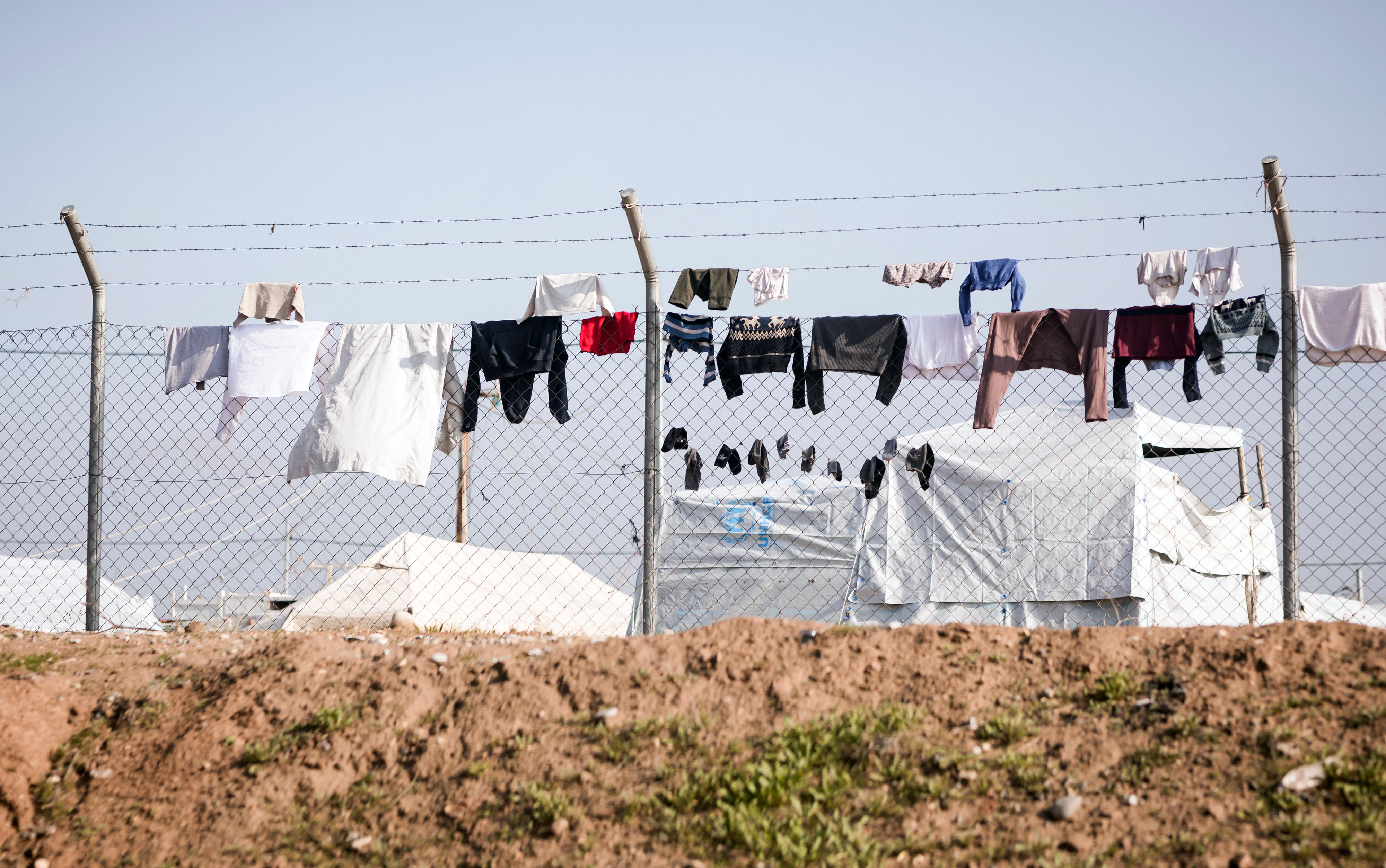Hasan Sham camp for internally displaced persons near Erbil, Kurdistan Region of Iraq
Copyright© Xander Heinl/photothek.net
Social situation Lack of basic services and poor infrastructure
Even if Iraq is considered a middle-income country because of its oil revenues, the level of care for the country’s people has not progressed much in recent years. The poverty rate is roughly 30 per cent. According to the United Nations, 2.5 million people are in urgent need of food assistance. The education and health sectors are marked by significant shortages and large numbers of Iraqi people lack reliable access to clean drinking water and sanitation.
Households only receive power for a few hours a day via the national grid. They have to meet the rest of their needs by getting electricity from the operators of private generators. Power stations and power networks are outdated and in need of repair, a significant proportion of the electricity is lost in the generation and transmission process. The Iraqi government is working to improve the poor energy supply in the country; the German company Siemens Energy is playing a key role in this development.
Displacement and migration
According to the United Nations, starting in 2014, around six million people were displaced by the armed conflict in Iraq. About five million of them have meanwhile returned to their home regions. Around one million people are still internally displaced, the majority of them living in the Kurdistan Region of Iraq, including numerous members of the Yazidi minority. Insufficient security and a lack of housing, jobs, education and health facilities, in particular, are keeping these people from returning to their home region in the disputed territories between Iraq, Syria, Turkey and Iran (as at December 2025).
Germany is committed to improving infrastructure and basic services so that all displaced persons are able to choose where they want to live and lead a life in safety and dignity in that place. There are still huge differences between the various parts of the country and between Shi’ite and Sunni groups. This is a big challenge for peaceful coexistence.
In addition, support needs to be provided for around 346.000 people who have fled to Iraq, more than 300.000 of them to escape the civil war in Syria (as at December 2025). Most of them, too, have found refuge in the autonomous Kurdistan Region of Iraq. The Kurdistan Regional Government and the local people are making massive efforts to rise to these challenges.
As at: 07/08/2024
